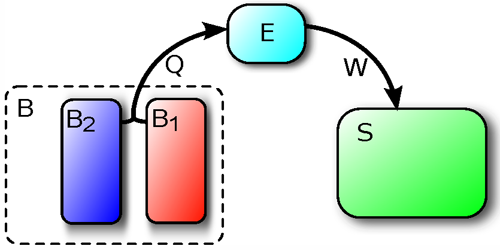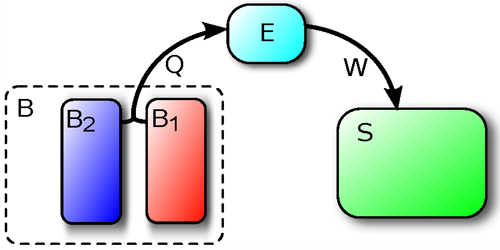Number of Cycles Matters for a Quantum Engine
A heat engine is remarkably easy to characterize. Run it for just one cycle, and you can calculate the work it performs over several cycles: the work done scales linearly with the number of cycles considered. Gentaro Watanabe from Zhejiang University in China and colleagues now say that’s not the case if the engine is a quantum system, as opposed to a classical one. The reason is the usual suspect: quantum correlations.
Using analytical and numerical tools, Watanabe and co-workers studied the performance of a heat engine that comprised a quantum system (a two-level atom) connected to a hot and a cold thermal bath on one side and an external system (a harmonic oscillator) on the other. The quantum system extracts thermal energy from the hot bath to do mechanical work on the external system, dumping any unused energy into the cold bath. Analyzing the Hamiltonian of the system over cycles, and factoring in all of the couplings between the engine’s different elements as well as intercycle quantum correlations in the state of the external system, the researchers demonstrated that the average amount of work done on the external system during cycles is not proportional to . Instead, the work is described by a mathematical expression that involves a term with a linear dependence on , just like in classical heat engines, and a nonlinear oscillatory (cosine) term that is tied to the quantum correlations.
As thermal machines are pushed towards increasingly smaller sizes—to the nanoscale and beyond—their operation will eventually become governed by quantum correlations. The results should therefore have ramifications for the study and characterization of tiny thermal devices.
This research is published in Physical Review Letters.
–Ana Lopes
Ana Lopes is a Senior Editor of Physics.





